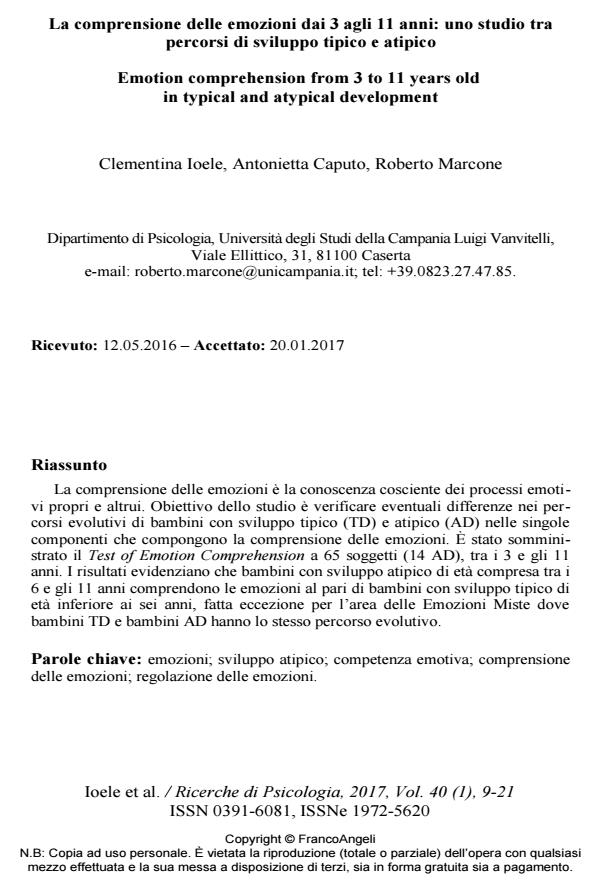Emotion comprehension from 3 to 11 years old in typical and atypical development
Journal title RICERCHE DI PSICOLOGIA
Author/s Clementina Ioele, Antonietta Caputo, Roberto Marcone
Publishing Year 2017 Issue 2017/1
Language Italian Pages 13 P. 9-21 File size 217 KB
DOI 10.3280/RIP2017-001001
DOI is like a bar code for intellectual property: to have more infomation
click here
Below, you can see the article first page
If you want to buy this article in PDF format, you can do it, following the instructions to buy download credits

FrancoAngeli is member of Publishers International Linking Association, Inc (PILA), a not-for-profit association which run the CrossRef service enabling links to and from online scholarly content.
Emotion comprehension is the conscious knowledge of the proper and other people’s emotional trials. Aim of the study is to verify differences in the evolutionary path of emotion comprehension both in children with typical (TD) and atypical (AD) development. The Test of Emotion Comprehension has been administered to 65 subjects (14 AD), from 3 up to 11 years old. The results underline that AD children understand the emotions like TD children of six years old or less, except on the area of the Mixed Emotions where TD children and children AD have the same evolutionary path.
Keywords: Emotion; atypical development; emotional competence; emotion comprehension; emotion regulation.
- Assessing the Factor Structure and Measurement Invariance of the Test of Emotion Comprehension (TEC): A Large Cross-Sectional Study with Children Aged 3-10 Years Valeria Cavioni, Ilaria Grazzani, Veronica Ornaghi, Alessandro Pepe, Francisco Pons, in Journal of Cognition and Development /2020 pp.406
DOI: 10.1080/15248372.2020.1741365
Clementina Ioele, Antonietta Caputo, Roberto Marcone, La comprensione delle emozioni dai 3 agli 11 anni: uno studio tra percorsi di sviluppo tipico e atipico in "RICERCHE DI PSICOLOGIA " 1/2017, pp 9-21, DOI: 10.3280/RIP2017-001001